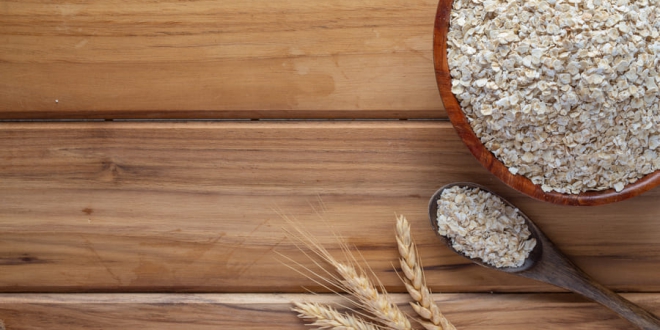When preparing meals, we pay attention to Fats, carbohydrates and proteins, but in most cases we don’t think about the fiber content in products. It is often neglected and we forget that fiber is important in the diet. How does it affect the body?
Fiber in the body – what do you need to know about it?
Dietary fiber is incredibly important to the human body. According to doctors’ recommendations, we should eat 25 to 30 g of it daily. As the latest research shows, however, we don’t consume nearly enough fiber these days. Its amount doesn’t cover our daily demand even in half. However, fiber deficiency may be very harmful to the body. It causes intestinal problems, constipations, gallstones, obesity or hemorrhoids. If we want to increase the amount of fiber consumed, we should above all include vegetables, fruits and grains in our daily menu. When planning our own diet, it’s also worth knowing that fiber comes in several variations. Every type of fiber plays a different specific role in the body.
Types of fiber – or soluble and insoluble fiber
There are two types of dietary fiber: soluble, or pectic, and insoluble, or cellulose – each of them has different properties and different impact on the body.
- Soluble fiber can be dissolved in water (as its name suggests) and slowly leaves the Digestive tract, absorbing Toxins and other harmful substances on the way, thus preventing them from being absorbed by the body – it is present in fruits, legumes, oat and nuts.
- Insoluble fiber, on the other hand, goes through the Digestive tract in a nearly unaltered form, collecting Toxins from colons on its way while also strengthening intestinal muscles and stimulating their work, as well as improving the digestive process – it is present in vegetables, whole grains and seeds, and its greatest amount can be found in wheat bran. The insoluble fiber is particularly valuable when cleaning the body, which means detoxing.
Fiber for weight loss
Those struggling with excess kilograms should consume food products Rich in fiber, as they are characterized by their low caloric value and low fat content. When we eat products containing fiber, our body absorbs lower amounts of fat. What is more, dietary fiber regulates absorption of not only fats but also sugars.
Fiber allows to control excessive cravings, as it swells in the stomach (mostly pectins), which makes you feel full. On top of that, meals that are rich in dietary fiber are very filling (stomach empties itself slower after consuming them).

Why is fiber an important ingredient of our diet?
- It prevents cardiovascular diseases: it limits absorption of fats, lowers the level of the bad LDL cholesterol.
- It lowers the blood sugar level: it reduces absorption of sugar in the blood, it helps Control the sugar level.
- It stimulates functioning of intestines, helps during constipations.
- And of course it helps lose weight.
A registered medical dietitian. She has been dealing with dietetics for many years and expanding her knowledge through participation in dietetics-related conferences and training as well as reading scientific press. She helps children and adults to overcome their dietary difficulties, such as overweight and underweight, and get rid of bad eating habits. She also lectures on dietetics and proper supplementation. Thanks to the work in one of the largest dietetics companies in England, she learned the importance of suitable motivation and support in the process of changing eating habits. She gets much satisfaction when she can encourage people to lead healthy lifestyle. She knows well that everyone has own specific needs, and therefore she diagnoses all her patients on a case-by-case basis.
 TheVacine
TheVacine
Anonymous
Visitor Rating: 5 Stars